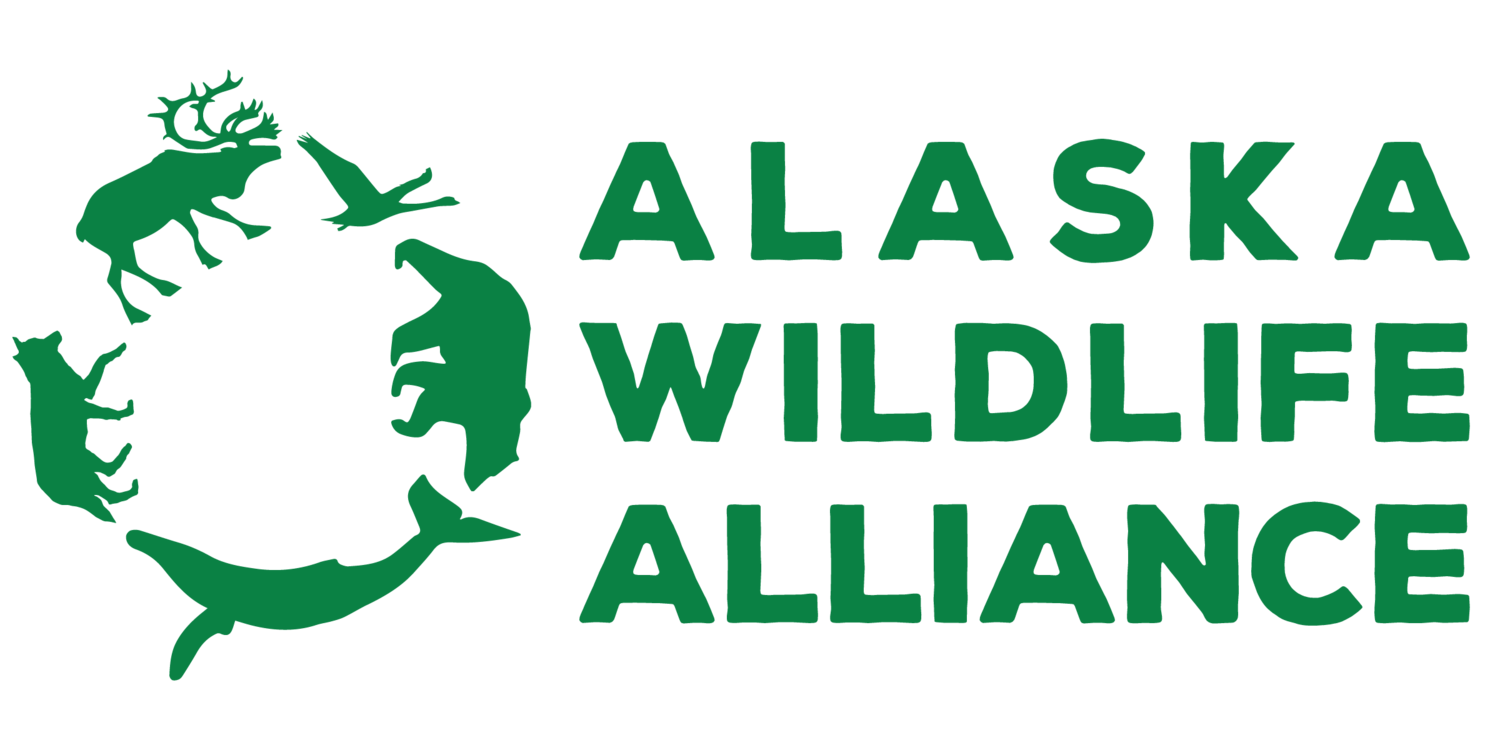Today, Alaska Wildlife Alliance is proud to be part of a coalition of Alaskans that have denounced the Bureau of Land Management’s decision to give sacred lands in the Arctic National Wildlife Refuge to private interests for oil and gas exploitation. Alaskans and our allies from around the world are watching - we will work tirelessly to protect arctic wildlife and defend their unique habitat.
#protectthearctic #defendthesacred #standwiththegwichin
Read our complete statement below or at this link
Background
Information below is from Defend the Sacred
“In Gwich’in Iizhik Gwats’an Gwandaii Goodlit means The Sacred Place Where Life Begins.
Across the nation, this place is otherwise known as the “1002 area” of the Arctic National Wildlife Refuge. In 1987, Congress designated 1.5-million-acres of the coastal plain (section 1002) of the Arctic National Wildlife Refuge to be reserved for potential oil and gas exploration and to be protected as habitat for critical species in the North.
Located in North East Alaska along the Beaufort sea, the “1002 area” is sacred to Indigenous people and home to numerous species of animals, who have migrated and lived in relation to that part of the earth for over 10,000 years. Furthermore, this section of the coastal plain is the birthing grounds for the Porcupine Caribou Herd, one of the largest migratory caribou herds in North America.
The Porcupine Caribou Herd knows no borders akin to their relatives the Gwich’in and Inupiaq, whose Peoples have lived in relationship across what is today known as Canada and Alaska’s arctic. The Porcupine Caribou Herd has the longest land migration of any animal in the world, because Indigenous Peoples are the original keepers of the ecosystem of the Arctic National Wildlife Refuge (including the “1002 area”) which needs to remain protected from industry and climate change. They continue to protect the land and their way of life. into the future.
With Trump’s election, the Alaska Congressional delegation Young, Sullivan, and Murkowski moved swiftly, creating and pushing a fast track bill to throw out protections for the Sacred Place Where Life Begins (1002 area).
TheTax Act, which passed in December 2017, included a provision mandating leasing and development in the 1002 area. The administration has repeatedly demonstrated their willingness to pursue “energy dominance” over democratic process.
Alaska’s Federal and State leaders pursue exploitation over honoring the sacred relationship between people and the land. They do not care about the safety and protection of the Arctic National Wildlife Refuge, the Indigenous Peoples who are connected to this land, and all of the earth which is being threatened by rapid climate change. In 2018, Alaska Governor Dunleavy met with Trump in Washington D.C., where he states “The President understands that Alaska is America’s natural resource warehouse.” And every action Dunleavy has taken since his first day in office has been a direct threat to the lives of Indigenous Peoples and the ecosystems of Alaska. Defend the Sacred Alaska is standing up and saying no more, enough is enough. We can not continue a last frontier logic and contribute to global greenhouse emissions while exploiting Indigenous peoples, stripping them of their lives and relationship to their environment.
ALASKA IS #NOTYOURWAREHOUSE.
Every aspect of Indigenous life is interwoven with connection to the land through food, culture, and spirituality. Stripping the land of protections from fossil fuel extraction, specifically the Sacred Place Where Life Begins, the government is sending a clear message that they do not care about the fundamental rights of Indigenous Peoples. As their actions are directly threatening the rights of mother earth and the rights of Indigenous Peoples.
Indigenous Peoples of the Arctic, the Gwich’in and Inupiaq, have stewarded their lands and the sacred place where life begins since time immemorial. They have and will continue to lead the efforts in defending the sacred in past, present, and future.
Defend the Sacred Alaska is an Alaskan movement to boldly uplift our sacred connection to each other, the earth, and all living beings.”


